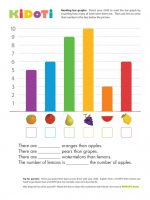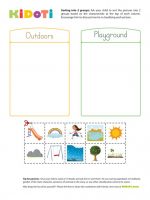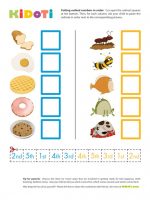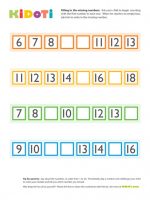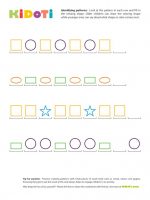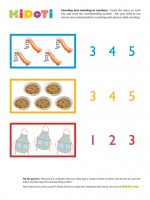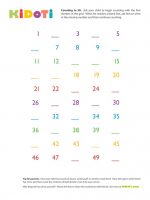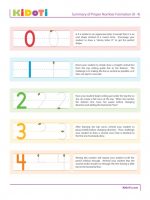In school, children will likely be expected to identify all 10 numerals and count up to and past 20. By the end of kindergarten, many children may even be counting up to and past 100 by ones, twos, fives, or tens. A basic kindergarten math curriculum also includes teaching children the ordinal numbers, sorting and classifying, and pattern creation. Each of these basic skills will set the foundation for more advanced math and number work later in school. The following math worksheets will help your child practice these important skills.
Learning Numbers
Working with Graphs
Sorting Numbers
Ordinal numbers
Skip Counting
Identifying Patterns
Counting and Matching Numbers
Counting Worksheets
Tracing Numbers
The importance of kindergarten math worksheets
Feeling comfortable with math concepts takes practice. The key, particularly for young children, is to make that practice as fun and engaging as possible. Colorful and appealing kindergarten math worksheets are ideal for making practice fun. They have bright, colorful pictures that are designed specifically to be engaging for young children.
Another benefit of helping your child learn math through kindergarten math worksheets is that these worksheets provide opportunities to practice the same skill many times. Each set of kindergarten math worksheets has numerous versions of each worksheet, including worksheets for many different skill levels. In this way, you can print numerous different worksheets that your child can complete for added practice.
Lastly, kindergarten worksheets are a great way to help children learn basic math concepts since they reduce to writing the abstract concepts of math. For example, rather than be required to remember a number while your child counts, a math worksheet will have that number written on the page, for example, next to the items being counted. Moreover, when counting, your child can actually touch each item on the page as he counts, rather than try to visualize nine pumpkins, for example, and then count them.
Tips for using these kindergarten math worksheets
The kindergarten math worksheets on this page progress from the most basic math topics at the top of this page (such as counting and number recognition) to the more advanced math topics towards the bottom of this page (such as graphing and sorting). Within each set of kindergarten math worksheets, the worksheets are labeled as beginning, intermediate, or advanced so that children at each skill level can be challenged appropriately.
Particularly for young children who have not begun a formal math program in preschool or kindergarten, I suggest starting with the number recognition worksheets and counting worksheets. Once your child is confident with his skills in those areas, you can introduce the more challenging kindergarten math worksheets towards the bottom of this page.
Begin by selecting the math area you want to focus on with your child, such as number recognition, pattern activities, or pictographs. Then, print at least two math worksheets from within that category so your child will have more than one opportunity to practice a certain skill. Even if your child quickly (and correctly) completes the first worksheet, the second worksheet you printed won’t be wasted and will, in fact, be a wonderful confidence-building activity for your child as he quickly completes it. Allow your child to set the pace, introducing more advanced math worksheets only after your child can easily complete the more beginning math worksheets.
As you introduce your child to these math worksheets, keep in mind that how children begin an activity typically sets the tone for the entire activity. So if your child begins working on a kindergarten math worksheet by struggling to complete it, he will likely feel defeated as he continues working (even if the subsequent math worksheets are easier). On the other hand, if your child begins working on a kindergarten math worksheet by quickly completing it, he will feel successful and confident in his math abilities and will carry that confidence with him as he tackles more advanced kindergarten math worksheets.

